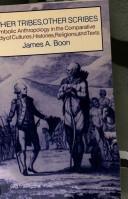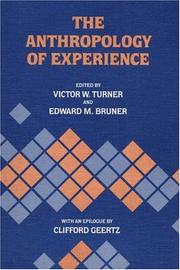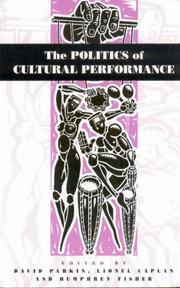| Listing 1 - 10 of 13 | << page >> |
Sort by
|
Book
ISBN: 144388085X 1443884650 9781443884655 9781443880855 Year: 2015 Publisher: Newcastle upon Tyne, England : Cambridge Scholars Publishing,
Abstract | Keywords | Export | Availability | Bookmark
 Loading...
Loading...Choose an application
- Reference Manager
- EndNote
- RefWorks (Direct export to RefWorks)
This book is an exploration of the potential of the ethnosymbolic approach to nation and identity to act as an instrumental tool for research into the mechanisms of identity-building. Using insights and data from Bulgarian history and culture, it views the construction of Bulgarian national identity as a modern process intimately affected by circumstances which prevailed in nineteenth-century Bulgarian society, and also as a process which, for its structural and psychological prerequisites, drew upon and reworked various specific features and peculiarities of an available but always malleable
National characteristics, Bulgarian. --- Ethnosociology. --- Symbolic anthropology. --- Bulgarian national characteristics --- Symbolism in anthropology --- Anthropology --- Ethno-sociology --- Ethnosociological method --- Ethnology --- Sociology
Book
ISBN: 9780822345923 9780822346104 0822346109 Year: 2010 Publisher: Durham, NC Duke University Press
Abstract | Keywords | Export | Availability | Bookmark
 Loading...
Loading...Choose an application
- Reference Manager
- EndNote
- RefWorks (Direct export to RefWorks)
"Making the case for a new kind of visual history, The Goddess and the Nation charts the pictorial life and career of Bharat Mata, 'Mother India', the Indian nation imagined as mother/goddess, embodiment of national territory, and unifying symbol for the country's diverse communities. Soon after Mother India's emergence in the late nineteenth century, artists, both famous and amateur, began to picture her in various media, incorporating the map of India into her visual persona. The images they produced enabled patriotic men and women in a heterogeneous population to collectively visualize India, affectively identify with it, and even become willing to surrender their lives for it. Filled with illustrations, including 100 in color, The Goddess and the Nation draws on visual studies, gender studies, and the history of cartography to offer a rigorous analysis of Mother India's appearance in painting, print, poster art, and pictures from the late nineteenth century to the present. By exploring the mutual entanglement of the scientifically mapped image of India and a (Hindu) mother/goddess, Sumathi Ramaswamy reveals Mother India as a figure who relies on the British colonial mapped image of her dominion to distinguish her from the other goddesses of India, and to guarantee her novel status as embodiment, sign, and symbol of national territory. Providing an exemplary critique of ideologies of gender and the science of cartography, Ramaswamy demonstrates that images do not merely reflect history; they actively make it."--Back cover.
Group identity --- Mother goddesses --- Postcolonialism --- Symbolic anthropology --- Political aspects --- Symbolism in anthropology --- Post-colonialism --- Postcolonial theory --- Collective identity --- Community identity --- Cultural identity --- Social identity --- Goddesses --- Identity (Psychology) --- Social psychology --- Collective memory --- Anthropology --- Political science --- Decolonization

ISBN: 0521271975 0521250811 Year: 1982 Publisher: Cambridge Cambridge University press
Abstract | Keywords | Export | Availability | Bookmark
 Loading...
Loading...Choose an application
- Reference Manager
- EndNote
- RefWorks (Direct export to RefWorks)
Ethnology. Cultural anthropology --- Symbolic anthropology. --- Ethnology --- Methodology. --- Philosophy. --- Symbolism --- Anthropologie sociale et culturelle --- Symbolisme --- Philosophy --- Methodology --- Philosophie --- Méthodologie --- Symbolic anthropology --- #SBIB:39A3 --- Symbolism in anthropology --- Antropologie: geschiedenis, theorie, wetenschap (incl. grondleggers van de antropologie als wetenschap) --- Anthropology
Multi
ISBN: 9781107025691 9781107651098 9781139198707 9781139518994 1139518992 1280775203 9781280775208 9781139517133 1139517139 1107025699 1107651093 1107232147 1139508385 9786613685599 1139518062 1139515489 113919870X 1139514563 Year: 2012 Publisher: Cambridge Cambridge University Press
Abstract | Keywords | Export | Availability | Bookmark
 Loading...
Loading...Choose an application
- Reference Manager
- EndNote
- RefWorks (Direct export to RefWorks)
Symbolic thought is what makes us human. Claude Lévi-Strauss stated that we can never know the genesis of symbolic thought, but in this powerful new study Alan Barnard argues that we can. Continuing the line of analysis initiated in Social Anthropology and Human Origins (Cambridge University Press, 2011), Genesis of Symbolic Thought applies ideas from social anthropology, old and new, to understand some of the areas also being explored in fields as diverse as archaeology, linguistics, genetics and neuroscience. Barnard aims to answer questions including: when and why did language come into being? What was the earliest religion? And what form did social organization take before humanity dispersed from the African continent? Rejecting the notion of hunter-gatherers as 'primitive', Barnard hails the great sophistication of the complex means of their linguistic and symbolic expression and places the possible origin of symbolic thought at as early as 130,000 years ago.
Linguistics --- Ethnology. Cultural anthropology --- Symbolic anthropology. --- Language and languages --- Human evolution. --- Thought and thinking. --- Origin. --- Symbolic anthropology --- Human evolution --- Thought and thinking --- Origin --- Mind --- Thinking --- Thoughts --- Educational psychology --- Philosophy --- Psychology --- Intellect --- Logic --- Perception --- Psycholinguistics --- Self --- Evolution (Biology) --- Physical anthropology --- Evolutionary psychology --- Human beings --- Origin of languages --- Speech --- Symbolism in anthropology --- Anthropology --- Social Sciences --- Language and languages - Origin

ISBN: 0252012364 0252012496 Year: 1986 Publisher: Urbana, Ill.
Abstract | Keywords | Export | Availability | Bookmark
 Loading...
Loading...Choose an application
- Reference Manager
- EndNote
- RefWorks (Direct export to RefWorks)
Ethnology. Cultural anthropology --- Ethnology --- Experience --- Humanities --- Anthropologie sociale et culturelle --- Expérience --- Sciences humaines --- Methodology --- Philosophy --- Méthodologie --- Philosophie --- #SBIB:39A5 --- #SBIB:39A4 --- Kunst, habitat, materiële cultuur en ontspanning --- Toegepaste antropologie --- Experience. --- Symbolic anthropology. --- Methodology. --- Philosophy. --- Expérience --- Méthodologie --- Symbolic anthropology --- Symbolism in anthropology --- Anthropology --- Knowledge, Theory of --- Psychology --- Reality --- Pragmatism --- Humanities Methodology

ISBN: 1571818987 1571819258 Year: 1996 Publisher: Berghahn books,
Abstract | Keywords | Export | Availability | Bookmark
 Loading...
Loading...Choose an application
- Reference Manager
- EndNote
- RefWorks (Direct export to RefWorks)
Culture --- Ethnology --- Rites and ceremonies. --- Symbolic anthropology --- Anthropologie sociale et culturelle --- Rites et cérémonies --- Symbolisme en anthropologie --- Philosophy. --- Philosophie --- Symbolic anthropology. --- Rites et cérémonies --- Rites and ceremonies --- Symbolism in anthropology --- Ceremonies --- Cult --- Cultus --- Ecclesiastical rites and ceremonies --- Religious ceremonies --- Religious rites --- Rites of passage --- Traditions --- Philosophy --- Anthropology --- Ritualism --- Manners and customs --- Mysteries, Religious --- Ritual
Book
ISBN: 9155427936 Year: 1991 Publisher: Stockholm Almqvist och Wiksell International
Abstract | Keywords | Export | Availability | Bookmark
 Loading...
Loading...Choose an application
- Reference Manager
- EndNote
- RefWorks (Direct export to RefWorks)
Ethnophilosophy --- Folk models --- Symbolic anthropology --- Ethnophilosophie --- #SBIB:39A71 --- #SBIB:39A73 --- Symbolism in anthropology --- Folk philosophy --- Indigenous peoples --- Philosophy, Primitive --- Primitive philosophy --- Etnografie: comparatieve studies --- Etnografie: Afrika --- Philosophy --- Conferences - Meetings --- Anthropology --- Ethnology --- Cognition and culture --- Methodology --- Cosmologie --- Langage symbolique --- Corps humain --- Ethnologie --- Anthropologie culturelle --- Afrique noire --- Afrique
Book
ISBN: 0631161201 Year: 1975 Publisher: Oxford Blackwell
Abstract | Keywords | Export | Availability | Bookmark
 Loading...
Loading...Choose an application
- Reference Manager
- EndNote
- RefWorks (Direct export to RefWorks)
Social change --- Symbolism --- Social structure --- Symbolisme --- Changement social --- Structure sociale --- Symbolic anthropology --- 316.77 --- #SBIB:39A3 --- #SBIB:309H504 --- 316.32 --- Organization, Social --- Social organization --- Anthropology --- Sociology --- Social institutions --- Change, Social --- Cultural change --- Cultural transformation --- Societal change --- Socio-cultural change --- Social history --- Social evolution --- Communicatiesociologie --- Antropologie: geschiedenis, theorie, wetenschap (incl. grondleggers van de antropologie als wetenschap) --- Code en boodschap: sociologische, antropologische benadering --- Globale samenlevingsvormen --- Social change. --- Social structure. --- Symbolic anthropology. --- 316.32 Globale samenlevingsvormen --- 316.77 Communicatiesociologie --- Symbolism in anthropology
Book
ISBN: 0231040326 0231040334 Year: 1977 Publisher: New York Columbia university press
Abstract | Keywords | Export | Availability | Bookmark
 Loading...
Loading...Choose an application
- Reference Manager
- EndNote
- RefWorks (Direct export to RefWorks)
Ethnology --- Symbolism --- Anthropologie sociale et culturelle --- Symbolisme --- #SBIB:39A3 --- 291.37 --- 39 <082.2> --- Symbolic anthropology --- Symbolism in anthropology --- Anthropology --- Antropologie: geschiedenis, theorie, wetenschap (incl. grondleggers van de antropologie als wetenschap) --- Processies. Symbolen. Riten. Emblemen --- Volkenkunde. Zeden en gebruiken. Culturele antropologie--Bloemlezingen. Readers. Citaten --- Symbolic anthropology. --- 39 <082.2> Volkenkunde. Zeden en gebruiken. Culturele antropologie--Bloemlezingen. Readers. Citaten --- 291.37 Godsdienstige ceremonieën. Religieuze symboliek. Mysteries. Inwijding --- 291.37 Processies. Symbolen. Riten. Emblemen --- Godsdienstige ceremonieën. Religieuze symboliek. Mysteries. Inwijding

ISBN: 0520205170 0520065832 9780520065833 Year: 1992 Publisher: Berkeley, Calif. University of California Press
Abstract | Keywords | Export | Availability | Bookmark
 Loading...
Loading...Choose an application
- Reference Manager
- EndNote
- RefWorks (Direct export to RefWorks)
Ethnology. Cultural anthropology --- Philosophy and psychology of culture --- Comparative religion --- Semiotics --- Art --- Epical, mythological and fictitious figures --- Symbolic anthropology --- Symbolisme en anthropologie --- Comparative studies. --- Ethnology --- Mythology --- Symbolism in art --- Allegory (Art) --- Signs and symbols in art --- Symbolism in anthropology --- Anthropology --- Beautiful, The --- Beauty --- Aesthetics --- Art and philosophy --- Philosophy --- Comparative studies --- Cross-cultural studies --- Analysis, interpretation, appreciation --- Philosophy. --- Cross-cultural studies. --- Symbolisme dans l'art --- Mythologie --- Anthropologie sociale et culturelle --- Etudes transculturelles --- Etudes comparatives --- Philosophie
| Listing 1 - 10 of 13 | << page >> |
Sort by
|

 Search
Search Feedback
Feedback About UniCat
About UniCat  Help
Help News
News